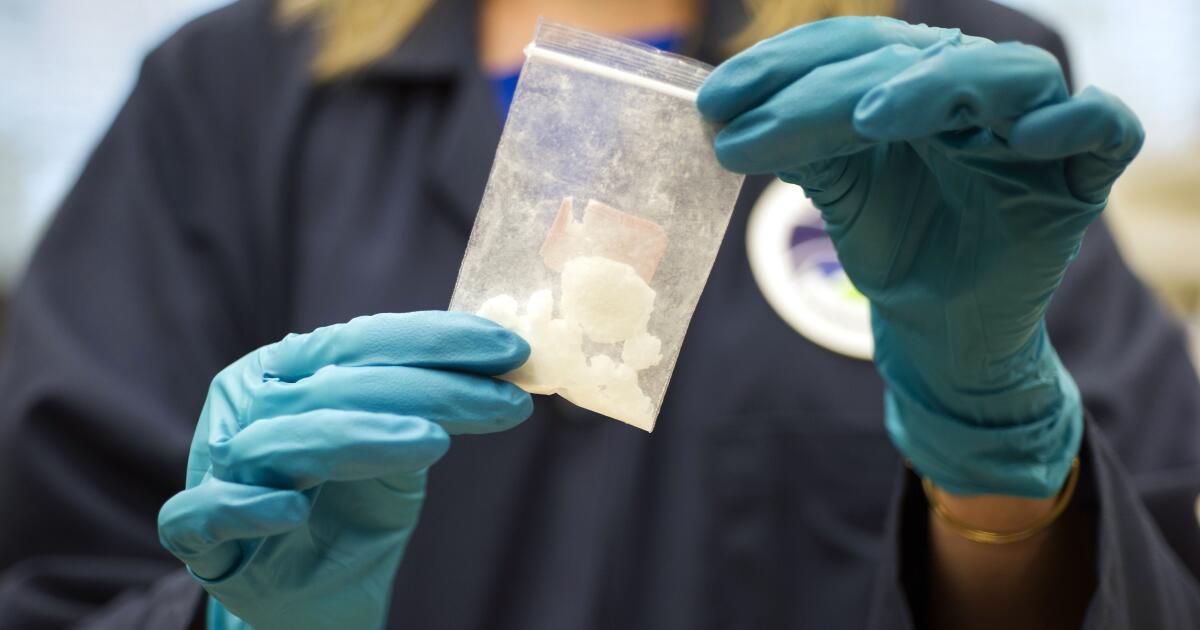Two unrelated facts combined with a lie form a powerful and dangerous piece of misinformation that is spreading virally.
The facts are that a drug overdose epidemic is killing more than 100,000 Americans a year and that many more immigrants than ever before are crossing the country's southern border. The lie is that immigrants bring fentanyl, the highly addictive opioid behind most fatal overdoses.
In fact, most illicit fentanyl is manufactured overseas and smuggled across the southern border. But it is carried largely by US citizens, not immigrants.
About 90% of the fentanyl seized at the border in recent years occurred at legal crossings, which undocumented immigrants typically avoid, and 91% of the seizures were from U.S. citizens, according to Border Patrol data. It is much easier to transport fentanyl pills or powder in one of the thousands of vehicles that pass through legal ports of entry every day than with unkempt people walking, wading and climbing across the border.
However, former President Trump and other politicians and experts have been tirelessly linking immigrants to fentanyl on the campaign trail, in Congress, and on social media. A Trump campaign ad warned of “record numbers crossing our border, costing taxpayers billions and nearly the same number of Americans killed by fentanyl as in World War II.” It showed images of crowds walking along a highway and a Fox News headline that read: “Border Patrol seized enough fentanyl to kill entire US.”
This is a classic example of what we call dangerous speech: language that inspires fear and violence by describing another group of people as an existential threat. And it's having a terrible effect: Americans are increasingly convinced that immigrants are to blame for the fentanyl crisis. Social media posts blaming immigrants for drug costs tripled from December to January, according to our analysis of more than 30 sites.
Along with other dangerous narratives calling immigrants terrorists and invaders, the fentanyl lie is fueling calls for states to send National Guard troops to the border, even from places far from the border, like Florida. This increases the risk of violent confrontations with migrants and federal Border Patrol agents.
It is especially difficult to refute this type of misinformation, which is based not only on partial truths but also on genuine fear and pain. Fear is a visceral emotion that provokes strong biological responses from the human body, so the most dangerous speech invokes a mortal threat of some kind.
The fear of diseases, for example, can be as transmissible as the microbes that cause them. Early in the COVID-19 pandemic, fear led people to believe dangerous information, including Trump's recommendation to take chloroquine, an anti-malarial drug, to protect against contagion. A recently published study attributed approximately 17,000 deaths throughout the United States and other countries to the use of hydroxychloroquine at the beginning of the pandemic.
The combination of truth, lies and fear has proven fatal before. During the Ebola epidemic of 2018-20, for example, it became clear that the disease was lethal and that many Congolese distrusted their government. When those facts were coupled with the false rumor that medical workers were spreading Ebola rather than trying to prevent people from dying from it, the workers were attacked. Disinformation inspired Almost 500 acts of violence and at least 25 deaths..
It is vital that influencers refute the fentanyl lie, which creates similar risks of violence against a particular group, in this case immigrants. Furthermore, such dangerous misinformation distracts attention and resources from effective responses to a deadly epidemic.
Susan Benesch is the executive director of the Dangerous Speech Project, where Catherine Buerger is the research director.












